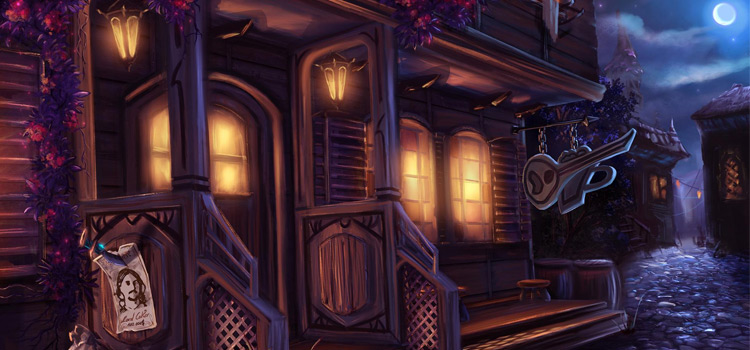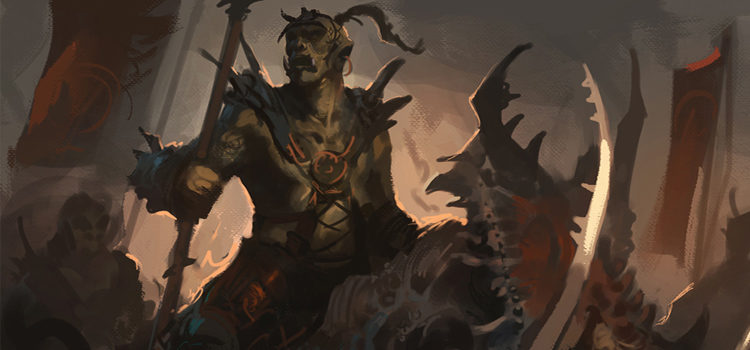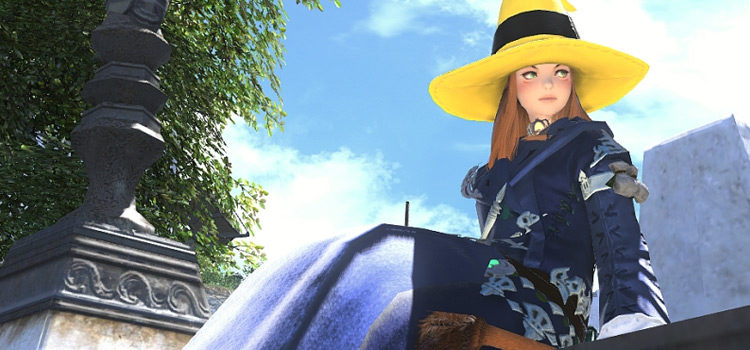College Of Glamour Bard Guide: D&D 5e Build Ideas + Tips
This post may contain affiliate links. If you buy something we may get a small commission at no extra cost to you. (Learn more).
Arguably the most flavorful bard subclass, the College of Glamour is all about how attractive you are.
And how you can use that gift to beguile and mesmerize your foes, or even heal your allies.
Billed as a college with its origins in the Feywild, bards of this college are brilliant performers who can turn neutral audiences into enthusiastic fans. And at higher levels, can prevent attacks on themselves.
The features of this subclass from Xanathar’s Guide to Everything are written with hints as to how you can enrich your game through roleplay, and invite opportunities to delight your table by describing how you appear when you use your powers.
This guide assumes you’ve chosen the College of Glamour and are wondering how to get the most out of it.
I’ll break down each of the subclass features and suggest ways to maximize them, along with some fun ways to roleplay their effects.
After you’re done here, you’ll be your battlefield’s most beloved in no time.
Mantle of Inspiration
This feature is absolutely invaluable. And you get it right away.
It allows you to manipulate the battleground without risking your allies’ safety, all for one use of Bardic Inspiration, a bonus action, and a reaction on the part of your allies.
It also gives your allies temporary hit points, which are always welcome.
Here’s what you get exactly:
“When you join the College of Glamour at 3rd level, you gain the ability to weave a song of fey magic that imbues your allies with vigor and speed.
As a bonus action, you can expend one use of your Bardic Inspiration to grant yourself a wondrous appearance. When you do so, choose a number of creatures you can see and that can see you within 60 feet of you, up to a number equal to your Charisma modifier (minimum of one). Each of them gains 5 temporary hit points. When a creature gains these temporary hit points, it can immediately use its reaction to move up to its speed, without provoking opportunity attacks.
The number of temporary hit points increases when you reach certain levels in this class, increasing to 8 at 5th level, 11 at 10th level, and 14 at 15th level.”
— Xanathar’s Guide to Everything
Maximizing Mantle of Inspiration
Since Mantle of Inspiration allows your chosen allies to move up to their speed without provoking opportunity attacks, it’s a great chance for them to get into position before their next turns.
Your melee fighters can get up close to their next targets and your ranged fighters can use that movement to escape a sticky melee situation.
It also means that you can clear an area of the battlefield to set up for an area of effect (AOE) spell without worrying about friendly fire.
With this in mind, consider using your bonus action on Mantle of Inspiration before you take your regular action, which you can use to cast an AOE spell.
As a 3rd-level bard, you have access to the following AOE spells from the Player’s Handbook and Xanathar’s Guide to Everything:
1st level: earth tremor, pyrotechnics, thunderwave
2nd level: calm emotions, cloud of daggers, shatter, silence, zone of truth
You’ll soon have access to staple AOE spells like hypnotic pattern, and at 10th level, you can use your Magical Secrets to swipe two spells from any class you like.
There are some excellent AOE spells on the wizard list, so definitely take a look at those when you get the chance.
Fireball is a popular choice, but choose one that suits your character.
Although this feature’s healing isn’t much compared to your healing spells, it doesn’t consume a spell slot. And it grants temporary hit points to multiple people, which you otherwise wouldn’t be able to do until you’re a 9th-level bard with access to mass cure wounds.
A handful of temporary hit points is still a handful more than what your allies had before.
They can thank you later.
Consistently increasing your Charisma score is always a good call for you, because if your Charisma modifier goes up, your spell save Difficulty Class (DC) and spell attack bonus also increase.
More importantly, you gain more uses of your Bardic Inspiration.
And in the case of this feature, a higher Charisma modifier means you can assist more of your allies.
If you have a larger party, it’s definitely worthwhile to take the Ability Score Improvement feature when you get the chance at 4th, 8th, 12th, 16th, or 19th levels.
If you manage to get your Charisma score to 20 early on, you still have the option of increasing other ability scores of your choice at later levels, or taking a feat if you’re playing with the optional feats rule.
Mantle of Inspiration Roleplay Tips
The key to roleplaying this feature is near the beginning; specifically the part where you grant yourself a “wondrous appearance.”
What Mantle of Inspiration boils down to is that you look so good, that the people who look upon you get stronger and are too fast for opponents to make attacks of opportunity.
Yep, you’re just that talented and gorgeous.
If you like roleplay and want your table to know exactly what it’s about (your appearance that’s so utterly inspiring) make sure you have a few options to choose from, each about a sentence long.
That way, you can switch it up each time you use this feature.
Do you toss your hair back like a Disney prince? Or is there something about how your scales/fur/feathers reflect the light? Or are you dressed particularly well today, and this is the first time your companions notice?
I know combat takes long enough already. But it gives the table a break from the mechanics when you sprinkle in some flavor like this.
You’re a bard, after all. And it’s only right that you take center stage on your turn.
Enthralling Performance
This feature is almost entirely designed for social interaction (except for a possible combat situation combined with a later feature from this college, which we’ll get to next).
Enthralling Performance may not seem like much at first.
But it’s a ton of fun to roleplay. And it can make a huge difference in winning people over.
It allows you to conserve your resources too—no need to use Bardic Inspiration or a spell slot. Here’s how it works:
“Starting at 3rd level, you can charge your performance with seductive, fey magic. If you perform for at least 1 minute, you can attempt to inspire wonder in your audience by singing, reciting a poem, or dancing. At the end of the performance, choose a number of humanoids within 60 feet of you who watched and listened to all of it, up to a number equal to your Charisma modifier (minimum of one). Each target must succeed on a Wisdom saving throw against your spell save DC or be charmed by you. While charmed in this way, the target idolizes you, it speaks glowingly of you to anyone who talks to it, and it hinders anyone who opposes you, although it avoids violence unless it was already inclined to fight on your behalf. This effect ends on a target after 1 hour, if it takes any damage, if you attack it, or if it witnesses you attacking or damaging any of its allies.
If a target succeeds on its saving throw, the target has no hint that you tried to charm it.
Once you use this feature, you can’t use it again until you finish a short or long rest.”
— Xanathar’s Guide to Everything
Maximizing Enthralling Performance
This feature is at its best when you have a set goal and targets in mind.
Do you need the local noble family to do you a favor, but you’re a stranger from out of town and they don’t quite trust you yet?
Or do you need access to a privileged area, but the guards are stubborn and won’t let you in?
It’s also possible to charm a bunch of regular tavern-goers and bask in their compliments for an hour. But if you pick your targets wisely, this feature will take you far.
You don’t have to be shy about using it either, since if a target succeeds on its saving throw, they don’t know that you tried to charm them.
Perhaps the most challenging aspect of this feature is making sure that your targets are attentive for your entire performance.
The best way to do that is to make sure that people are expecting your performance. Because then you’ll already have their attention.
If you picked the entertainer background, for example, you’re probably making use of the By Popular Demand feature, which lets you secure free food and lodgings in exchange for a nightly performance.
If you can get your targets into the local tavern and have them be present when you’re set to perform, that’s the perfect opportunity to ensnare them.
Now if you don’t have that background and feature, you can always go to an area frequented by your targets and cover for yourself by busking in the hopes that they stop by. And that’s not to say you can’t attempt to use this feature mid-conversation… but it’s definitely harder to break into a performance when you’re in the middle of a discussion.
How this feature is handled mechanically is largely up to the DM. But it’s always worth chatting with them to make sure you’re on the same page.
Maybe your DM will call for a Charisma (Performance) check to see if your performance is sufficiently entertaining to keep them captive for all of it. Or they’ll opt to narrate what happens based on what you say you’re doing.
All-in-all: it doesn’t expend a use of your Bardic Inspiration, it doesn’t require concentration, it doesn’t use a spell slot, and if your targets succeed on their saving throws, you’ll face few (if any) consequences for your attempt to charm them.
So I’d say use it liberally.
Enthralling Performance Roleplay Tips
The roleplay possibilities for this feature are near-endless.
Every bard approaches their performances a different way, from simply stating “I perform,” to putting the session on hold for a few minutes while you actually perform in character. Admittedly I’m much more the latter, but there’s no “right” way to do it.
Even if you don’t have much musical aptitude or simply don’t want to do a performance in real-life, you should still let your party (and audience) know what you’re performing.
As a bard, it makes sense for you to have a repertoire of performances to choose from.
You can even make your own roll table to decide what you’re performing on any given day.
Think about the kinds of performances your character would want to give. If you’re not sure about that, you can say they wrote a poem or song based on a particularly heroic encounter that you and your party had.
Or perhaps an interpretive dance, since you can do that for a performance, too.
It’s a great opportunity to express what matters to your character and to give everyone a sense of their stage presence.
Additionally you can always spice up your performances with a little prestidigitation here and a bit of minor illusion there. You might be surprised at how well the laypeople take to your special effects, which are cantrips you can cast with a wave of your hand.
Mantle of Majesty
I love Mantle of Majesty. It’s SO much fun. And if you can pull it off in combination with Enthralling Performance, you’re golden.
It requires a little strategizing to use it well, but you can literally take control of another creature and cause it to either waste its turn, or use its turn to do something that benefits you.
Or you can just make them use their action to amuse yourself. Definitely have some fun with this.
Maximizing Mantle of Majesty
Sure, this feature uses your bonus action and requires your concentration.
But once it’s there you can cast command up to ten times without expending a single spell slot.
That’s a pretty sweet deal.
I mentioned earlier that you can combine Mantle of Majesty with Enthralling Performance, and here’s how: Enthralling Performance states that if a target fails its Wisdom saving throw after they’ve seen and heard you perform for 1 minute, they’re charmed by you.
And with Mantle of Majesty, any target charmed by you automatically fails the save against your command.
If you can time your performance so that you captivate someone you know you’ll be fighting within the next hour, they’ll stay charmed by you at the start of combat. And you can use this feature right away.
If not Enthralling Performance, you could cast charm person for a similar effect.
If you don’t want to use this feature right away, it’s also a viable strategy to save it for when you’re running low on spell slots and/or Bardic Inspiration.
Suddenly the ability to keep casting spells without expending spell slots becomes a lot more beneficial. And if you don’t have many uses of Bardic Inspiration left, you needn’t feel bad about using your bonus action for Mantle of Majesty, either.
Since command is limited to an order of one word, you must choose it carefully.
The spell outlines some common commands such as approach, drop, flee, grovel, and halt, but you can also get creative and choose something else.
For example, I’ve used the following commands myself:
- Applaud, to keep a target’s hands occupied and for my own validation.
- Dance, to make a target waste their turn for my amusement.
- Doff, to make the target remove their remove their armor and thereby weaken themselves.
- Throw/Yeet, to make a target throw their weapon. On their next turn they’d have to use their movement to go looking for it, potentially giving my allies attacks of opportunity.
Here are some that I’ve never used personally, but could be useful:
- Autograph, to force a target to sign a document for you.
- Confess, to possibly get information out of a target.
- Deactivate, to force a target to disarm a trap for you.
Remember that if the command is anything other than the first five I listed, the DM determines how the target behaves.
But most of these are straightforward enough to produce the desired effect.
You can choose to use your bonus action to give one of your allies the Bardic Inspiration die, instead of casting command while Mantle of Majesty is still in effect. But you won’t be able to do both on the same turn because they both require a bonus action.
Though as long as you don’t interfere with your concentration, you still have the option to cast command.
Of course, it would make most sense to get everything you can out of Mantle of Majesty and use it on each of your turns because it only lasts for 1 minute… but I’m just letting you know you still have options.
As for your action, you can choose what to do with it as you normally would.
The only thing you can’t do is cast another spell. Because Mantle of Majesty involves casting command and you can’t cast two spells in one turn.
If you still want to cast something, the cantrip vicious mockery is always an excellent choice.
Mantle of Majesty Roleplay Tips
Mantle of Majesty provides a couple of opportunities for roleplay and extra flavor.
Not only do you get to choose a command each turn, you also “take on an appearance of unearthly beauty.”
This college is all about your looks, and you look simply marvelous.
Like Mantle of Inspiration, think about how you might look when this feature is active.
The text specifically says “unearthly” so you can look to the supernatural for ideas.
Maybe your eyes turn black and if a creature looks into them, they can see galaxies. Or maybe you appear to have a set of sharp fangs that make people almost want you to bite them.
If you have feathers or fur or even scales, you could perhaps change color or develop a gradient.
No matter what you choose, be sure to give the table a description so they can visualize your character’s extraordinary appearance.
The second element to roleplaying this feature is, of course, the very command that you issue.
Would your character delight in their power over this other creature? Or would they give their command dismissively, as if the whole encounter was a waste of their time?
Would your character want to humiliate their target and enjoy the cruelty of it? Or would they be practical and choose a strategic command?
Or maybe they wouldn’t think too much about it and just want to entertain themselves for a round without going out of their way to embarrass the target.
Let your group know how your character issues the command and how they react to the target’s behavior.
Unbreakable Majesty
This capstone feature is brilliant, generating a win-win combat situation for you.
At 14th level, you can appear so regal that a creature can’t attack you without first succeeding on a Charisma saving throw.
And even if it succeeds, you still get to impose disadvantage on the creature’s saving throws against your spells on your next turn. And you get this feature back after a short rest.
It’s nothing short of awesome.
Here’s the College of Glamour’s final feature:
“At 14th level, your appearance permanently gains an otherworldly aspect that makes you look more lovely and fierce.
In addition, as a bonus action, you can assume a magically majestic presence for 1 minute or until you are incapacitated. For the duration, whenever any creature tries to attack you for the first time on a turn, the attacker must make a Charisma saving throw against your spell save DC. On a failed save, it can’t attack you on this turn, and it must choose a new target for its attack or the attack is wasted. On a successful save, it can attack you on this turn, but it has disadvantage on any saving throw it makes against your spells on your next turn.
Once you assume this majestic presence, you can’t do so again until you finish a short or long rest.”
— Xanathar’s Guide to Everything
Maximizing Unbreakable Majesty
Thankfully, you don’t need to do too much to maximize this feature.
It’s wonderfully easy to deploy since it only takes your bonus action the first time you use it.
You can keep benefitting from the effects of this feature without depleting your resources whatsoever: no concentration, no additional bonus actions, no spell slots, and no uses of Bardic Inspiration needed.
You just use a bonus action once and you have Unbreakable Majesty for 1 whole minute.
The way the feature is written means that you can use it once per turn—but it doesn’t have to be your turn.
The description clearly says “a turn,” which means you can use this feature when a creature takes a legendary action. Which happens at the end of another creature’s turn.
So you can enjoy forcing even the most powerful monsters to make a saving throw to determine if they can attack you.
It should be unlikely for an enemy to be able to attack you for the first time on a turn because at this point, your Charisma score should be decently high, if not 20 already. A Charisma score of 20 gives you a spell save DC of 18, and Charisma saving throws are uncommon, which tips the odds even more in your favor.
Working This In With A Team
Now this ability is great for you.
But maybe not so great for your party members, who may find that they’re the new targets of the attack meant for you.
But not to worry—you can maximize this feature and minimize damage to your allies by making them difficult to target.
You could choose to learn enthrall and greater invisibility and strategize with your party to hide or cover them, so that you look like the only possible target. This, coupled with your (hopefully) high spell save DC, would lead to enemies wasting their attacks on you.
And your allies could still sneakily take their turns before retreating back to their hiding places. If not that, you could always use your trusty Mantle of Majesty feature, cast command, and order an enemy to attack you, or use another charm spell for the same effect.
But what if an enemy succeeds on their saving throw and actually *gasp* manages to attack you?
Well, that’s almost a good thing. Because the price for being able to attack you is a disadvantage on any saving throw against your spells on your next turn.
You can prepare for an enemy attack to go through by beefing up your AC with magic items like the ring of protection, which you should be able to obtain at this high a level.
If you max out your Charisma score early and you’re playing with the optional feats rule, consider taking the “Tough” feat.
This nifty feature increases your hit point maximum by an amount equal to twice your level and then by another 2 hit points every time you gain a level. That way, you’ll be able to take a few hits and reap the benefits of Unbreakable Majesty.
It’s important to note that this feature only works for attacks that target you. Meaning that it encompasses the attack action and spells that require an attack roll, but not spells and effects that require you to make a saving throw.
So this feature is best used when you’re up against something that relies heavily on attacks of any kind.
Unbreakable Majesty Roleplay Tips
Most distinctively, you get to choose an “otherworldly” permanent aspect of your appearance “that makes you look more lovely and fierce.”
You could give your character markings or a tattoo of some kind, change their eye color, their hair/fur/feather/scale color, or go a little more spooky and elongate their nails or change the shape of their pupils.
You can do pretty much anything with this. Just be sure to describe it for your table.
If you like, you could also roleplay your character reacting to their new appearance.
Would they revel in it, or be unnerved by the change? Would they be expecting it, or would it be a surprise?
Additionally, when this feature activates, you assume a “magically majestic presence.”
Think about how this could play out in combat.
Does an attacker run up to you, but when you turn to look at them they’re so enamored with your beauty that they just can’t bring themselves to attack you?
Or do you glare sternly at them with your air of royal authority and scare them off?
Or maybe you distract and confuse them with your appearance so they’re too muddled to attack you?
No matter how you roleplay this feature (or any other College of Glamour feature) the most important thing is that you’re having fun with it.
A Note on Ability Scores
In this guide I’ve discussed increasing your Charisma score, which may lead you to wonder how best to spread your stats when creating a bard.
Of course, you’re welcome to spread them however you like according to the character you want to play.
But if you want an optimized build, I’d spread them like this, from highest to lowest:
Charisma: Without a doubt, this should be your highest stat. Your bard abilities depend on it.
Dexterity: This stat bumps up your Armor Class (AC). Also, bards are proficient in Dexterity saving throws.
Constitution: It’s worth investing in this stat because it’ll pay off in the form of better concentration saving throw results and more hit points as you gain levels.
Wisdom: Wisdom saving throws, especially against effects that target a character’s mind, are common. A decent Wisdom score often comes in handy.
Intelligence: You can take or leave this one. You have spells that can give you information that Intelligence-based skill checks would give you.
Strength: If your Dexterity is good, you won’t need this stat at all in combat. There are also fewer skills associated with this ability and effects that require Strength saving throws aren’t all that common.






